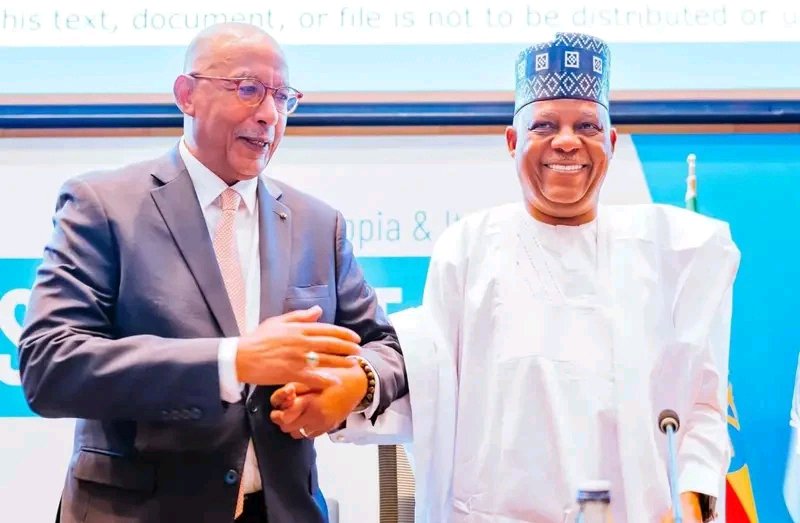Vice-President Kashim Shettima, has disclosed that Nigeria has committed $538.05 million to the first phase of the Special Agro-Industrial Processing Zones (SAPZs), aimed at transforming the country’s agricultural sector and creating over 785,000 jobs.
Speaking during a high-level dialogue with African youth agri-food entrepreneurs and leaders at the United Nations Food Systems Summit Stocktake (UNFSS+4) in Addis Ababa, Ethiopia, Shettima said the initiative is being executed in collaboration with key development partners, including the African Development Bank (AfDB), the International Fund for Agricultural Development (IFAD), and the Islamic Development Bank (IsDB).
“The initiative is projected to attract $1 billion in total investments by 2027, reduce post-harvest losses by 80 per cent, and has already generated over 785,000 jobs across targeted regions,” he said.
Highlighting Africa’s demographic advantage, the vice-president described the continent’s youth as its “greatest asset,” stressing that unlocking their potential is key to securing the continent’s future.
He reiterated President Bola Tinubu’s administration’s resolve to tackle food insecurity through a state of emergency on food security, the reactivation of over 500,000 hectares of farmland, the deployment of strategic food reserves, and expanded access to seeds and agricultural extension services.
Shettima also underscored the importance of security reforms, saying farmers must be able to safely access their lands. “Food security must be treated as a foundation for peace,” he said.
He called for global cooperation to address critical environmental and developmental challenges, including recharging the Lake Chad Basin, expanding irrigation infrastructure, and establishing a national farm database.
Shettima also advocated for anticipatory climate action, emergency school feeding in conflict-affected areas, and resilience-building measures to support long-term food system stability.
In 2023, the federal government secured a $1 billion investment for SAPZs in 24 states. On December 11, 2024, the AfDB confirmed it had facilitated a $2.2 billion capital mobilisation drive for the second phase of the SAPZ project.
Also speaking at the summit, Amina Mohammed, the United Nations deputy secretary-general, warned that over 37 million children under five are facing acute malnutrition—almost the size of Canada’s population. She called for transformational development planning over short-term fixes and praised countries embedding resilience in national strategies.
Other speakers included Cindy McCain, executive director of the World Food Programme; Salah Jama, Somalia’s deputy prime minister; and Moubarack Roubo from Chad’s Ministry of Agricultural Production and Industrialisation.
Shettima used the platform to announce Nigeria’s 10-year strategic action plan (2026–2036) to overhaul its agriculture sector as part of the implementation of the Comprehensive Africa Agricultural Development Programme (CAADP) Kampala Declaration.
“A nation that is prepared for the future is not known by the promises it makes but by the place it gives to its youth in shaping those promises. To see African youths leading the charge in this essential sector speaks more eloquently than any speech,” Shettima said.
He added that Nigeria has inaugurated an agriculture sector working group and a technical committee to drive national implementation of the CAADP plan, align national and subnational priorities, and foster public-private partnerships.
The vice-president also reaffirmed Nigeria’s commitment to end raw commodity exports by ramping up investments in agro-processing and value addition.
“This is not a sprint. It is a generational relay that requires collective action, strategic partnerships, and an unwavering commitment to shared responsibility,” he said.
Shettima concluded that the plan would prioritise youth training and mentorship in agri-tech and agribusiness, backed by a robust monitoring and evaluation framework.





